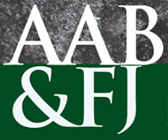Abstract
The dynamics of Islamic banking growth offer unique insights into the opportunities and challenges in accounting and tax harmonization. Conducted in 2023, this qualitative study explores barriers and solutions to accounting and tax integration within the Islamic banking sector through case studies of leading Islamic banks in Indonesia and Malaysia. Through in-depth analysis based on expert interviews and regulatory document review, this research identifies divergences in accounting principles, regulatory infrastructure, and human resource readiness as primary constraints. A proposed theoretical framework, integrating Maqasid Sharia principles with good governance, aims to create an accountable, sustainable, and integrated accounting and taxation system. Its implementation is expected to enhance transparency and accountability of Islamic banks, thereby strengthening the broader Islamic economy in both nations, with long-term improvements in operational efficiency and fiscal compliance.
Keywords: Sharia Accounting, Islamic Banking Accounting, Taxation, Harmonization, Maqasid Sharia, Good Governance, Islamic Economy.
How to Cite:
Rahayu, S. K., Komala, A. R. & Yusuf, S. N., (2024) “Enhancing Islamic Banking through Accounting and Taxation Harmonization: A Comparative Study of Indonesia and Malaysia”, Australasian Accounting, Business and Finance Journal 18(5): 9, 155–190. doi: https://doi.org/10.14453/aabfj.v18i5.09
Rights: In Copyright
Downloads:
Download PDF
251 Views
173 Downloads

